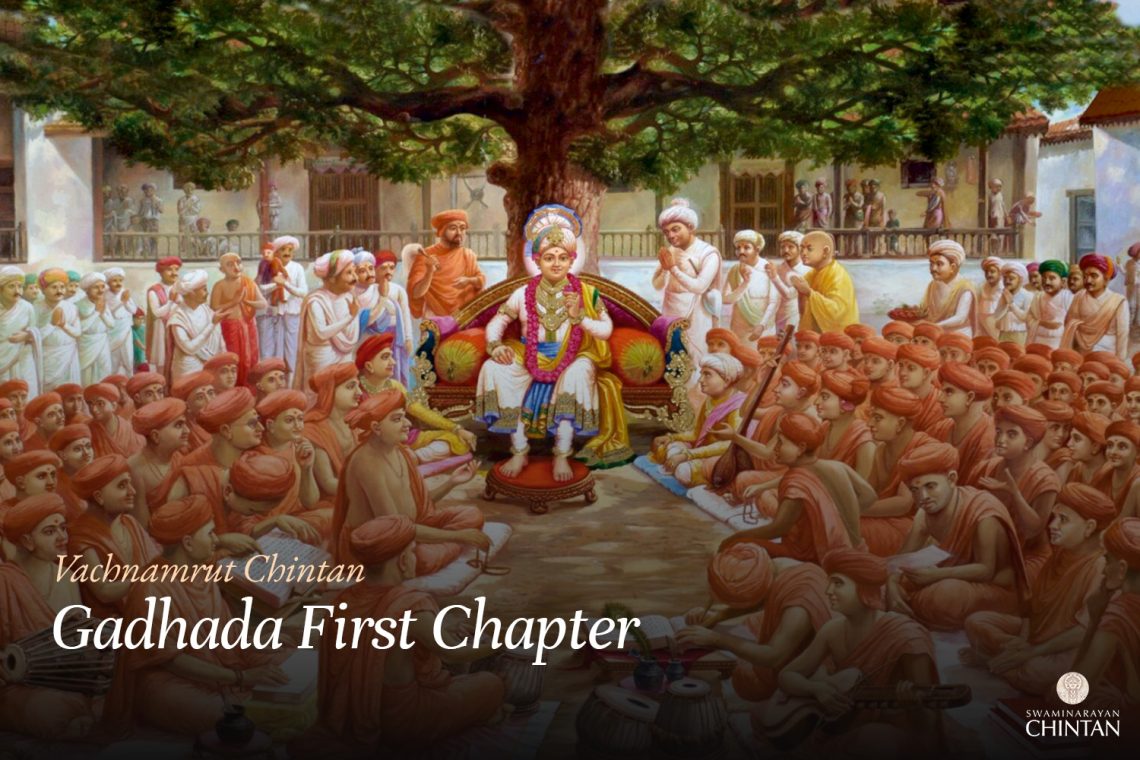Central Insights:
- Among all the means to please God, which is the strongest?
Key Points:
- The refuge (Ashray) in God must be unwavering.
- There should be no flaws or doubts in seeking God’s refuge.
Explanation
The term ‘Ashray’ (refuge) is multi-faceted:
Ashray: A place of rest, like a home.
Ashray: A nurturer or guardian, similar to parents for children.
Ashray: A protector for those who seek shelter.
Ashray: To uphold sacred symbols and practices, such as the Tilak, Chandalo, and rituals like Mala and Dandvat.
Ashray: The essence of being completely protected.
The word Ashray originates from the root verb which signifies service. Thus, ‘Ashray’ means to serve in a spiritual manner. Achieving this eternal service to God is termed as Ashray in scriptures. In such a state, heartfelt prayers emerge, signifying a devotee’s modest attempts to serve God, and a recognition of God’s grandeur and glory. A true devotee understands the limitations of worldly means to achieve God’s service and God’s form. Such recognition leads to a sincere plea to God to grant His service and form. This profound sentiment is termed as Ashray.
Shreeji Maharaj describes the ‘Ashray’ using two adjectives. Firstly, it must be exceedingly steadfast. For instance, there’s the narrative of Devaji Patel, a devout follower from Detad village. He exemplified unwavering faith when he was more interested in blessings from Maharaj than any other deity. Such narratives highlight the immense strength of taking refuge in God.
The second descriptor of Ashray emphasizes an absence of doubt. Classic stories like those of Gajendra and Draupadi underscore the importance of undivided faith. When one relinquishes all other supports and relies solely on God, then God offers complete refuge.
There are three primary paths to achieving this refuge (Ashray):
Through Blind Faith: Such followers possess an immense love for God, believing He will fulfill all their desires. The tale of Prahlad exemplifies this. In the community, other examples include Vajibai from Vijapur and Vira Sheladia from Samadhiyala.
Through Love: This involves pure, undistracted love towards God, as seen in the devotion of the Gopis and other passionate believers. Their hearts are anchored only to God, with no attachments to the mundane world.
Through Understanding: Here, refuge is sought after discerning God’s unparalleled greatness. Such a refuge is the most superior. Just as the touch of the philosopher’s stone turns iron into gold irreversibly, understanding-based refuge creates an unshakeable bond with God. Even God cannot waver the faith of such a devotee. Shukdevji Maharaj’s unwavering faith in God, even when King Parikshit questioned God’s actions during the Raas Leela, serves as a prime example of this.
In essence, understanding and recognizing God’s supreme nature and then taking refuge in Him is considered the highest form of devotion.
Glossary
| Blind Faith – Faith Without Question |
| Gajendra – An Elephant Who Took Refuge in God |
| Gopis – Devotees of Krishna The cowherd women of Vrindavan known for their unparalleled love for Krishna. |
| Murti of God – Divine Form of God |
| Raas Leela – Divine Dance of Lord Krishna with Gopis |
| Refuge in God – Complete Reliance on God |

